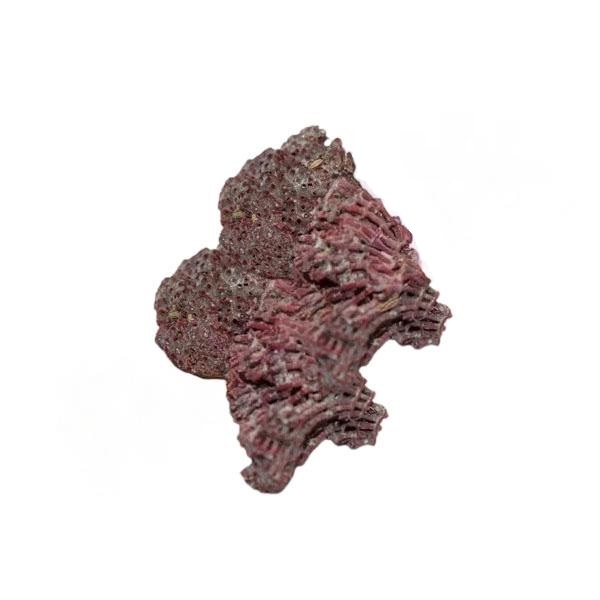INTRODUCTION
Urdu name: Beekh Marjan/ Marjan ki Jarr
Beekh Marjan (Coral Root) refers to a type of herb or plant with a root system resembling coral, often used in traditional medicine. It may belong to different species, especially orchids like Corallorhiza or Cymbidium, depending on the region. The roots are generally used for their medicinal properties, such as supporting respiratory health, aiding digestion, and having mild sedative effects.
Types of Species
There are several types of Coral Root (Beekh Marjan), which can refer to plants in different genera or species depending on the traditional usage. Some commonly referenced types are:
- Corallorhiza maculata – Spotted Coral Root: An orchid found in North America, known for its root-like rhizomes and medicinal uses in some indigenous cultures.
- Corallorhiza Trifida – Early Coral Root: Another North American species, often found in moist forests.
- Cymbidium Aloifolium – Also referred to as Coral Root in some traditional medicines, particularly in South Asian regions.
Characteristics
The Beekh Marjan (Coral Root) herb has distinctive characteristics that vary depending on the specific species, but generally includes:
- Root System: Resembles coral formations, with branched, underground rhizomes that often look gnarled or intricate.
- Non-photosynthetic: Some species, like Corallorhiza orchids, lack chlorophyll and depend on fungi (mycorrhizal relationships) for nutrients rather than photosynthesis.
- Flowers: Small, inconspicuous flowers that can be spotted, pale, or light-colored, with delicate petals.
- Habitat: Typically found in shady, forested areas, particularly in moist soil conditions.
- Medicinal Properties: Traditionally, the root is used for respiratory issues, digestive problems, mild sedative effects, and sometimes as a tonic to improve general health.
Forms
Beekh Marjan (Coral Root) can be used in various forms, particularly in traditional medicine. Common forms include:
- Dried Roots: The roots are often dried and used in herbal preparations, teas, or powders.
- Powder: The dried roots can be ground into a fine powder, which is typically mixed with water, milk, or honey for consumption.
- Decoction: A common method involves boiling the roots to create a decoction, used for treating respiratory or digestive ailments.
- Tincture: The roots can be soaked in alcohol or another solvent to create a tincture, used in small doses.
- Capsules: Powdered Beekh Marjan may also be encapsulated for ease of use as a supplement.
Health Benefits
Beekh Marjan (Coral Root) is traditionally known for various health benefits, particularly in Unani and Ayurvedic medicine. Below are some of its potential health benefits with more detail:
Respiratory Health
- Uses: Beekh Marjan is often used to treat conditions like asthma, bronchitis, and chronic coughs.
- How it works: It may help soothe the respiratory tract and reduce inflammation, making it easier to breathe. It also has mild expectorant properties, which help clear mucus from the lungs.
Digestive Aid
- Uses: The herb is traditionally used to relieve indigestion, bloating, and general digestive discomfort.
- How it works: Beekh Marjan may stimulate digestive enzymes, improving digestion and nutrient absorption. Its anti-inflammatory properties can also reduce gastrointestinal irritation.
Sedative and Calming Effects
- Uses: It is sometimes used to alleviate anxiety, nervousness, and insomnia.
- How it works: The herb is believed to have mild sedative properties, promoting relaxation and improving sleep quality. It might reduce nervous system activity, thus inducing calm.
Anti-inflammatory and Pain Relief
- Uses: Beekh Marjan is applied to reduce inflammation and provide relief from pain, particularly joint pain or headaches.
- How it works: It may act as a natural anti-inflammatory agent, reducing swelling and discomfort in conditions like arthritis or general aches.
Immune System Support
- Uses: In some traditions, it is believed to strengthen the immune system and improve general vitality.
- How it works: Through its tonic effects, it may boost the body’s natural defense mechanisms, helping in the prevention of illnesses and infections.
Note: It’s always consumed after combining with other medicine. And don’t be used as a raw form. Always consult a professional doctor before using it.
Side Effects
While Beekh Marjan (Coral Root) is generally considered safe when used appropriately, potential side effects may include:
- Allergic Reactions
- Gastrointestinal Distress
- Drowsiness
- Drug Interactions
- Hormonal Effects




